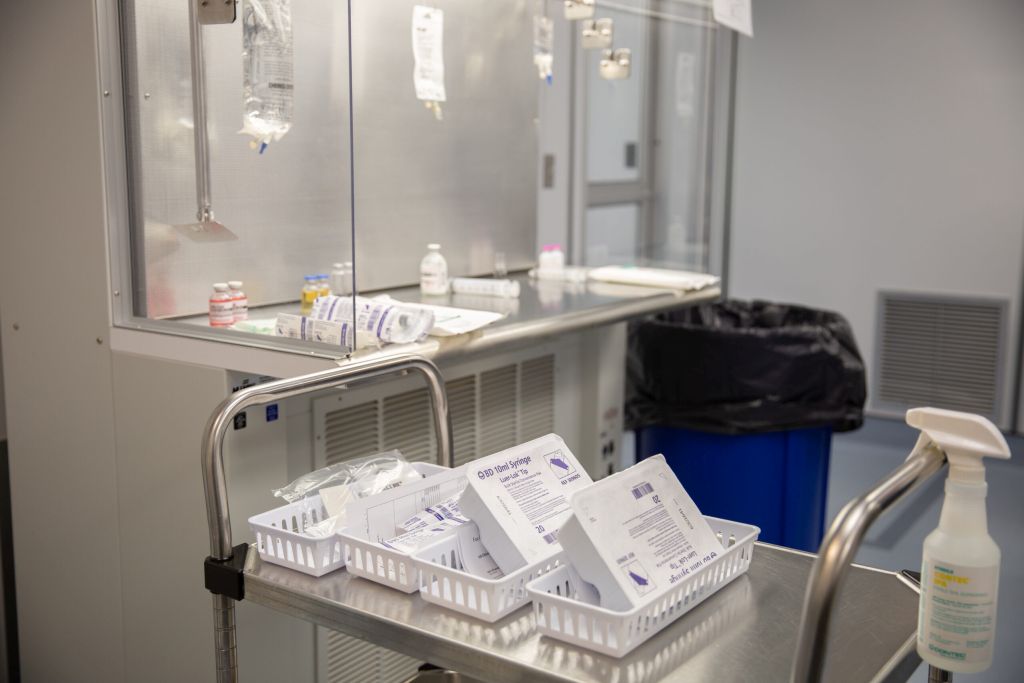Hygiene is fundamental to health. Whether you’re managing a recurring medical routine, caring for a loved one, or following a fitness program, one thing remains constant—your health practices must be clean, well-maintained, and safe. But maintaining hygiene in health practices is often an overlooked aspect of daily life, leading to potential risks like infections or compromised treatments.
This blog will walk you through why hygiene is crucial and how simple practices and products, like bacteriostatic water, can make a big difference.
By the end of this blog, you’ll have the tools and knowledge to significantly enhance your health-related routines, prevent contamination, and contribute to your overall well-being.
Why Hygiene is Non-Negotiable in Health Practices
Good hygiene goes beyond washing your hands or wiping down surfaces. At its core, hygiene involves practices designed to help prevent the spread of germs, bacteria, and viruses. When maintaining health practices, such as using injections, preparing medications, or handling medical-grade equipment, even minor lapses in cleanliness can have serious consequences.
For instance, contaminants can be introduced into the bloodstream during an injection, potentially leading to infections. Similarly, improper storage or careless handling of medical supplies can render them ineffective. This is where maintaining sterility and taking preventive measures can make all the difference.
The good news? Hygiene doesn’t have to be complicated. By using the right tools and following proper processes, it’s easier than you think to achieve a high level of cleanliness.
Understanding Bacteriostatic Water and Its Importance
One essential product in maintaining medical hygiene is bacteriostatic water. You may have come across this term and wondered, “Why is it important?” Bacteriostatic water is a specially-prepared sterile product used in medical procedures that require mixing medications or diluting substances before injection. What sets it apart is the addition of benzyl alcohol, which prevents the growth of bacteria in the water.
Think of bacteriostatic water as an extra layer of protection. By inhibiting bacterial growth, it reduces the risk of contamination and keeps your health practices as clean and safe as possible. This makes it indispensable for anyone needing to prepare injections or dilute medications, whether at a hospital, a clinic, or home.
If you’re planning to buy bacteriostatic water, ensure you obtain it from reputable suppliers adhering to strict medical manufacturing standards. This is vital for ensuring the product’s quality and effectiveness in maintaining sterility.

Key Tips for Maintaining Hygiene in Health Practices
Having the right mindset is the foundation for effective hygiene. Awareness of contamination risks and a commitment to cleanliness go a long way in preventing potential health issues.
Start with a clean environment. Cleanliness minimizes bacterial exposure. Wipe down surfaces frequently with an effective disinfectant and keep your health-related materials stored in sealed containers.
Next, focus on hand hygiene. Before you handle medical supplies, always wash your hands with soap and water. If you’re in a situation where soap isn’t immediately accessible, use an alcohol-based hand sanitizer with at least 60% alcohol content to ensure your hands are germ-free.
Now, let’s talk about medical supplies. Always be mindful of expiration dates. Products like syringes, medication vials, and bacteriostatic water must be within their validity period to work as intended. Using outdated or improperly stored supplies can introduce contaminants and reduce their effectiveness.
When handling injections, sterility is key. Use single-use syringes whenever possible to eliminate the risk of contamination. If the procedure requires bacteriostatic water, ensure you use it exactly as instructed, including adhering to the expiration time after the product has been opened.
Lastly, educate yourself. Staying informed about health and hygiene practices can equip you with the knowledge to identify potential risks and address them effectively. Whether you’re learning from blogs like this one or speaking to a healthcare provider, knowledge is power when it comes to maintaining hygiene.
Common Missteps That Could Compromise Hygiene
Even with the best intentions, it’s easy to make mistakes that affect hygiene. One common error is reusing medical equipment like needles or syringes to save money—a practice that can lead to cross-contamination and exposure to harmful pathogens. Tempting as it may seem, the risks far outweigh the cost savings.
Another frequent mistake is skipping proper cleaning routines for reusable medical tools. If you use reusable devices, be diligent about cleaning and sterilizing them thoroughly each time they’re used to ensure no bacteria are left behind.
Improper storage is another issue. Vital health products, including bacteriostatic water, need to be stored as per the manufacturer’s recommendations. Failure to do so can reduce their efficacy. Avoid exposing such products to moisture or extreme temperatures, and always reseal after use to preserve their sterility.
Lastly, many people underestimate the importance of staying updated on hygiene guidelines. Best practices evolve over time, so it’s essential to revisit recommendations periodically to ensure you continue to follow safe procedures.
Transforming Hygiene Habits for Long-term Benefits
Hygiene is not just about managing the present—it’s an investment in your future health. When applied consistently, good hygiene practices significantly lower the risk of infections, improve the outcomes of health routines, and contribute to overall well-being.
Making positive changes to your hygiene habits requires dedication and, occasionally, assistance. Speak with a healthcare professional if you’re uncertain about best practices or which products to use. They’ll ensure you’re on the right track and avoid unnecessary risks.
